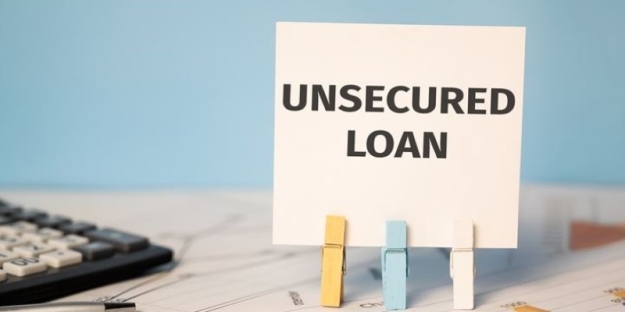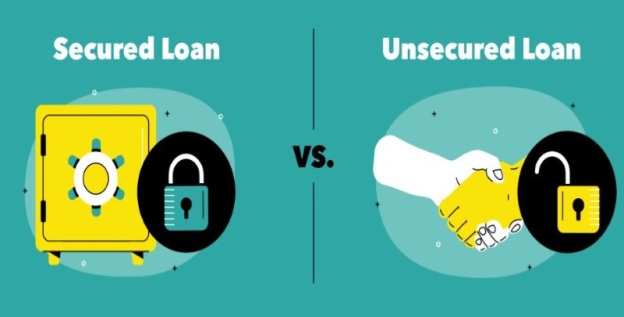Differences Between Secured And Unsecured Loans
Ever wondered why some loans require you to put your car or home on the line, while others don’t? The answer lies in whether a loan is secured or unsecured. Both can help you get the funds you need, but they work in very different ways. Knowing these differences can save you money, reduce risk, and help you choose the right borrowing option for your situation.
What Is A Secured Loan?
A secured loan is tied to an asset, often called collateral. This could be your home, car, savings, or other valuable property. The lender holds a legal claim over the collateral until you repay the loan in full. If you fail to make payments, they can take the asset to recover their losses.
Mortgages and auto loans are the most common examples. In these cases, the property you're buying doubles as the collateral. Secured personal loans may use other assets, such as certificates of deposit or jewellery, to back the loan.
Key Traits Of Secured Loans:
Usually offer lower interest rates because the lender’s risk is reduced.
May allow for larger loan amounts and more extended repayment periods.
Require careful consideration, as you risk losing your collateral if you default.
What Is An Unsecured Loan?
Unsecured loans don't require collateral. The lender's decision is based on your credit history, income, and ability to repay. Since there's no asset to seize if you stop paying, unsecured loans carry more risk for the lender, and usually cost more in interest.

Personal loans, credit cards, and student loans often fall into this category. The approval process is generally faster because there’s no need to assess collateral value.
Key Traits Of Unsecured Loans:
Typically have higher interest rates compared to secured loans.
Loan amounts may be smaller and repayment terms shorter.
Approval depends heavily on your credit score and financial track record.
Main Differences Between Secured And Unsecured Loans
While both loan types can serve similar purposes, the way they’re structured affects cost, risk, and flexibility.
Collateral Requirement
The most significant difference is collateral. Secured loans require it; unsecured loans don't. This single factor influences almost every other difference between the two.
For example, taking out a secured home equity loan means the lender can place a lien on your house. With an unsecured loan, they cannot take your property without legal action, but they can still report missed payments to credit bureaus and potentially sue for repayment.
Interest Rates
Collateral gives lenders a safety net, so they’re often willing to offer lower interest rates on secured loans. This can mean significant savings over time. Unsecured loans generally come with higher rates because the lender is taking on more risk.
Loan Amounts
Lenders tend to approve larger amounts for secured loans. The value of your collateral affects the maximum loan size. With unsecured loans, the amount is based on your credit profile, income, and debt-to-income ratio.
Repayment Terms
Secured loans may stretch over years, like a 30-year mortgage. Unsecured loans usually have shorter repayment periods, which means higher monthly payments but less time paying interest.
Approval Process

Unsecured loans can be quicker to get since there's no collateral to appraise. Secured loans might take longer because the lender needs to verify the asset's value and ownership.
Risk To The Borrower
With secured loans, the main risk is losing your collateral if you can’t make payments. With unsecured loans, you won’t lose a specific asset, but your credit score can take a heavy hit, and you might face collection actions or legal judgments.
When A Secured Loan Might Be The Better Choice
If you’re making a large purchase, need a long repayment period, or want to keep interest costs low, a secured loan can be a strong option. For example:
Buying A Home or Vehicle: These purchases almost always require secured financing.
Debt Consolidation at a Lower Rate: Using home equity to pay off high-interest debts can save money, though it increases the risk to your property.
Building or Repairing Credit: Timely payments on a secured loan can strengthen your credit history.
However, it's crucial to ensure you can keep up with payments, as defaulting could result in losing your collateral.
When An Unsecured Loan Might Work Better
Unsecured loans are helpful when you need money quickly and don't want to risk your property. They can be ideal for:
Emergency Expenses: Medical bills, urgent travel, or sudden repairs.
Smaller Personal Projects: Home upgrades, weddings, or education costs not covered by other financing.
Borrowers Without Significant Assets: If you don’t own property that could serve as collateral, unsecured loans are more accessible.
The trade-off is usually a higher interest rate, so they’re best for short-term borrowing when repayment can be managed quickly.
How do Credit Scores Affect Both Loan Types?
Your credit score plays a role in both secured and unsecured loans, but the impact differs.
For secured loans, collateral can help you qualify even if your credit is less than perfect. However, a poor score may still result in higher rates or stricter terms.
For unsecured loans, your credit history is often the deciding factor. Lenders want to see strong evidence that you pay debts on time. A good score can secure better terms, while a low score might lead to rejection or high rates.
Common Misconceptions About Loan Types
Many people assume secured loans are always “better” because of lower rates. While that’s often true, they’re not risk-free—losing a home or car is far worse than paying extra interest.
Another common myth is that unsecured loans are only for small amounts. While limits are generally lower, strong borrowers can still access significant sums through unsecured financing.
Deciding Which Loan Is Right For You
Choosing between a secured and unsecured loan comes down to your needs, financial health, and comfort with risk. Ask yourself:
Do I have an asset I’m willing to put up as collateral?
How quickly do I need the funds?
Can I handle higher interest rates to avoid risking my property?
What repayment term works for my budget?
Comparing offers from multiple lenders can help you see the real cost of each option and avoid expensive mistakes.
Getting Help With Loan Choices
Whether you're borrowing for a significant purchase or covering short-term expenses, understanding the differences between secured and unsecured loans can make a big difference. By weighing the risks, costs, and repayment terms, you can choose the type of loan that aligns best with your situation and protects your financial future.